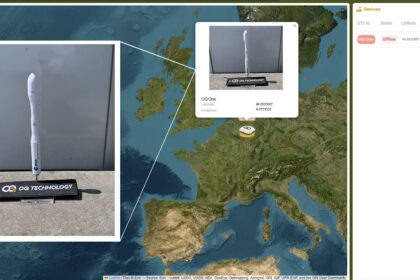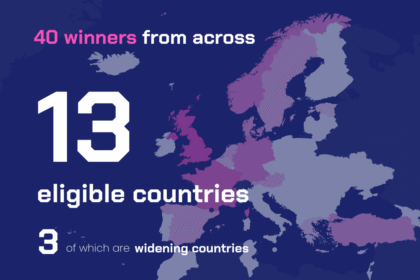Yesterday, the European Commission proposed the EU Space Act, along with its Vision for the European Space Economy. There has been much debate about whether EU acts help or hinder European innovation and competitiveness. We’ll look into the proposed regulation to see how it could impact innovators.
The European Commission itself states that the goal of the Act is to make space “cleaner, safer and more competitive in Europe and its export markets.” It puts forward three key pillars with which they intend to do that, which include safety, resilience, and sustainability.
At first glance, none of these three pillars seems to address competitiveness in Europe and its export markets. The European Commission has helpfully provided more detailed descriptions for each:
- Safety: space is becoming more congested. Today, 11,000 satellites are in orbit, and another 50,000 are expected to launch over the next decade. At the same time, more than 128 million pieces of debris are already circulating in space, sharply increasing the risk of collisions. In a worst-case scenario, this could trigger cascading crashes that render key orbits unusable and cut off access to vital satellite services. To prevent this, the EU Space Act introduces measures to improve the tracking of space objects and limit new debris — including requirements for safe satellite disposal at the end of their operational life.
- Resilience: space is becoming more contested. Space infrastructures face growing threats from cyberattacks and electronic interference targeting satellites, ground stations, and communication links. These attacks can lead to the loss of satellites or disruption of critical services. The EU Space Act will therefore require all space operators to conduct thorough risk assessments throughout a satellite’s lifecycle, applying cybersecurity rules and incident reporting tailored to the space sector.
- Sustainability: As space activities grow, managing resources, CO2 emissions and debris becomes vital. Measuring environmental impacts allows the industry to cut its footprint and support EU sustainability. The EU Space Act will set common rules to measure these impacts. These rules will ensure consistent verified data and encourage innovation in areas such as in-space servicing to extend satellite life and reduce debris.
So far, none of the three key pillars mentions anything related to competitiveness or a business context. However, they do lay out certain requirements that everyone will have to meet, namely: improved tracking for space objects, disposal requirements, cybersecurity rules, and sustainability data measurement.
So far, it sounds like they will add requirements to space innovators. Requirements, however, aren’t always a bad thing. As journalist Andrii Degeler pointed out in his latest newsletter for Unzip.Media, sometimes these regulations are what make Europe a decent place to be. The Act goes on to state that these requirements would be applied proportionally to the company’s size, maturity, and would take into account the level of risk involved.
Lawmakers seem to be aware of the concern that increased regulation can bring. They outline that there will be support and funding to help meet these requirements. It also sneaks in a sentence at the very end of this paragraph that startups will have additional support.
Support will be offered to mitigate potential costs for the industry. This included capacity building, access to testing facilities, and helping space operators to prepare their applications for authorisation. This will in particular support start-ups and SMEs.
The mention of startups in the Act proposal is great news. This indicates that lawmakers are thinking about startups and innovators as an important component in the Space industry, as well as part of Europe’s path to leadership in the innovations area. In fact, the entire Act has been designed out of the realization that Space is an important frontier and opportunity for European leadership and economic growth.
The Commission laid out its reasoning:
The European Commission has identified the space economy and the EU Space Act as a key priority, as outlined in the Draghi and Letta reports, and more recently in the Competitiveness Compass and the Commission work programme for 2025.
The need for such a legislative initiative was also reflected in two recent Joint Communications: the EU Approach for Space Traffic Management and the EU Space Strategy for Security and Defence, echoing Member States’ calls for establishing, through a coherent and stable regulatory framework, an internal market for space activities.
If the proposed Act doesn’t lay out the opportunities or economic case for space innovation, the Vision for the European Space Economy is more helpful. It states that “the Vision outlines a future-proof strategy to ensure Europe captures a strong share of the global space market, while reinforcing its autonomy and technological edge. It establishes over 40 concrete actions to strengthen the EU’s space ecosystem.”
Some of those concrete actions are, indeed, helpful for innovators:
- A pilot Seed Investment Facility, Growth Investment Facility, and Debt/Non-dilutive Financing Facility (linked to CASSINI).
- Enhanced cooperation with ESA and EUSPA to ensure seamless internal market procedures.
- A procurement platform for non-EU opportunities in coordination with EU Delegations.
- The development of a dedicated methodology to monitor the EU’s competitiveness in space and the EU’s share of the global space economy.
- And more
The announcement emphasizes that the Vision is fully aligned with all of the existing documents regarding Europe’s “Innovation Agenda”, which include the Draghi, Letta, and Niinistö Reports, the European Competitiveness Compass, and the EU Startup and Scaleup Strategy.
All indications point towards a very unified EU, that appreciates and values the role of startups and scaleups in generating high-growth economic impact. While it doesn’t shine through in the proposed Act (at the moment), the Vision for the European Space Economy gives hope that spacetech innovators will have new opportunities and an environment in which to thrive.




